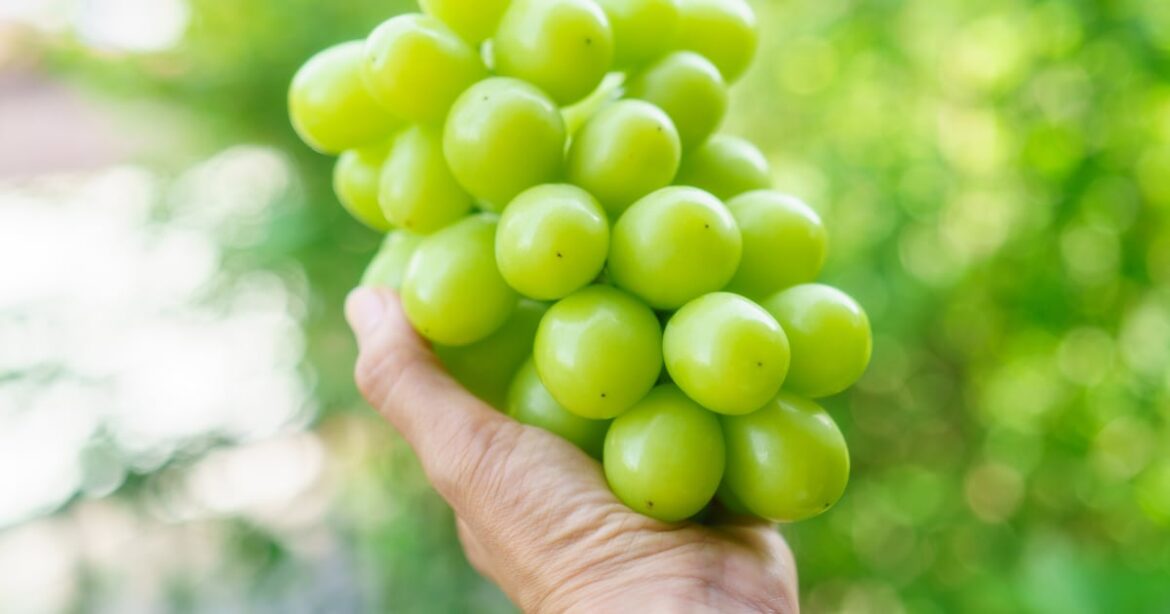On September 30, members of the press were briefed on Koizumi’s upcoming trip to the Philippines for the ASEAN+3 Ministers on Agriculture and Forestry (AMAF) meeting.
In particular, Koizumi highlighted his intention to meet with the Philippine’s secretary of agriculture, Francisco P. Tiu Laurel Jr and discuss an early lifting of grape exports – Shine Muscat grapes in particular.
He said: “I intend to discuss an early lifting of the ban on exports of Japanese grapes, such as Shine Muscat grapes, and strongly urge Japanese farmers to be able to export as soon as possible.”
On October 3, the minister updated that the talks went over positively.
This came on the heels of a backlash over Koizumi’s alleged suggestion of offering licensing agreements for the overseas production and sales of Shine Muscat grapes.
Koizumi, who was widely considered a frontrunner to become Japan’s next premier before the election of Sanae Takaichi, was said to have initiated talks with New Zealand to allow the cultivation of the prized fruit.
A sour situation
This was met with serious concern, loudest of which were from Kotaro Nagasaki, Governor of Yamanashi, a prefecture known as the Kingdom of Fruits.
During a press conference on September 25, Nagasaki said this could put the local industry “at risk of decline and on the brink of collapse.”
He advocated for the development of export markets and increasing the competitiveness of locally produced Shine Muscat instead of allowing overseas cultivation.
“If overseas licensing is pursued without first establishing a proper export environment for domestic production regions, it could lead to the decline of fruit-growing areas. The priority should be to create conditions that allow domestic producers to compete fairly in international markets.
“Efforts must be made to expand export destinations and improve logistics and regulatory systems, thereby building a framework in which domestic production regions can thrive. In our prefecture, we will work in collaboration with relevant organizations to ensure the sustainable development of fruit agriculture,’ said Nagasaki.
The governor called on agriculture policies to prioritise domestic producers.
“Farmers in domestic production areas are making truly strenuous efforts. As long as they are allowed to export overseas and the necessary conditions are met, there is nothing to be afraid of in terms of obtaining permission to produce overseas. However, we ask that you stop creating a situation where we are unable to export overseas and our share of the pie is taken away from us.”
According to Nagasaki, export opportunities for Shine Muscat have been stagnating over the years, despite it being crucial to the survival of fruit farming in the prefecture.
“Six years have passed since I became governor of the prefecture, but in those six years we have not opened up at least one new market. On the other hand, for example, imports of grapes from Peru have been allowed, and imports of plums from the United States have been allowed. A lot of these products are coming in from overseas, but we continue to be in a situation where we are completely unable to let anything go out.”
Farm ministry folds
On September 26, Koizumi downplayed the backlash by publicly agreeing on the importance of expanding export markets while assuring that any licensing deals would not be made without consulting local producers and governors.
He clarified that the ministry considered overseas licensing contracts as a possible way to “assert the legitimacy of Japanese Shine Muscat”.
Koizumi also addressed the export restrictions on Shine Muscat grapes due to phytosanitary reasons.
“There are 21 countries and regions to which exports can be made without the need for negotiations on lifting the ban, provided that a phytosanitary certificate is attached. Negotiations on lifting the ban have already been held with Thailand and Australia. I believe that the national government, together with the governor and others, needs to support the further expansion of Shine Muscat in these markets.”
Squeezed out by competition
The Shine Muscat grape is one of the “most important products that drives Japan’s fruit farming industry”, said Nagasaki.
However, Japan’s Shine Muscat grape producers face major challenges particularly due to unauthorised overseas cultivation of the coveted fruit in countries such as China and South Korea.
These grapes are sold at a much lower price, undermining Japanese producers.
According to a 2021 Nikkei Asia, Japan dedicates around 1,200 hectares of land to the production of the Shine Muscat variety.
However, with 53,000 hectares, China has over 40 times more farmland.
Meanwhile, Korea has 1,800 hectares and exports five times more grapes in value than Japan.
Korea has also secured access to the Australian market for export before Japan.
Nikkei Asia reported in 2022 that Shine Muscat grape smuggling to China costs Japan some $70m a year.
To make matters worse, cases of contamination in so-called Shine Muscat grapes have damaged the brand significantly.
In 2024, the Thai Pesticides Alert Network conducted laboratory tests on 24 samples and found 23 samples laced with chemicals, with one sample containing chlorpyrifos.
Nine of the samples were from China while the remaining 15 samples were of unknown sources.


AloJapan.com